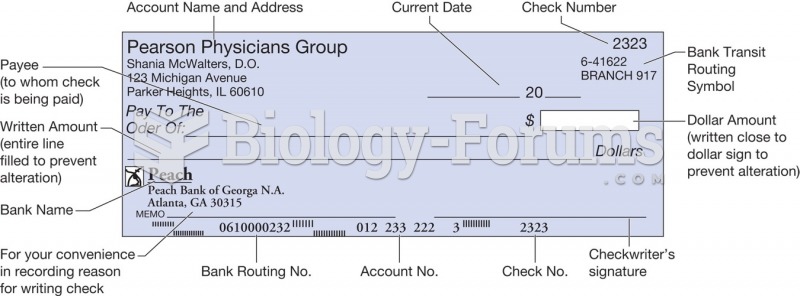|
|
|
Addicts to opiates often avoid treatment because they are afraid of withdrawal. Though unpleasant, with proper management, withdrawal is rarely fatal and passes relatively quickly.
Signs of depression include feeling sad most of the time for 2 weeks or longer; loss of interest in things normally enjoyed; lack of energy; sleep and appetite disturbances; weight changes; feelings of hopelessness, helplessness, or worthlessness; an inability to make decisions; and thoughts of death and suicide.
Earwax has antimicrobial properties that reduce the viability of bacteria and fungus in the human ear.
After 5 years of being diagnosed with rheumatoid arthritis, one every three patients will no longer be able to work.
The average adult has about 21 square feet of skin.







